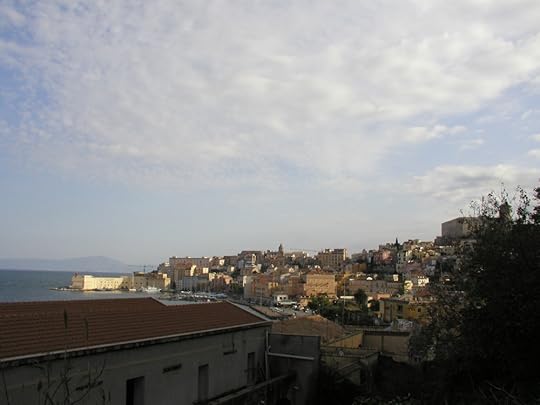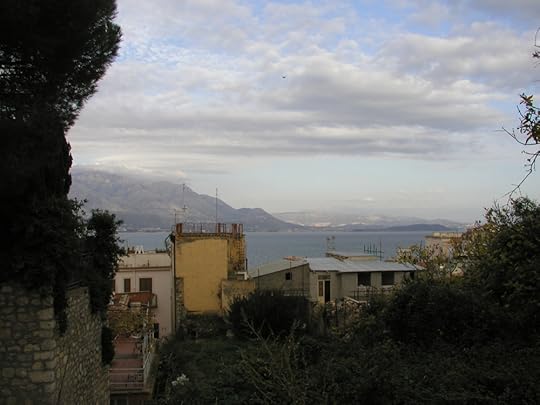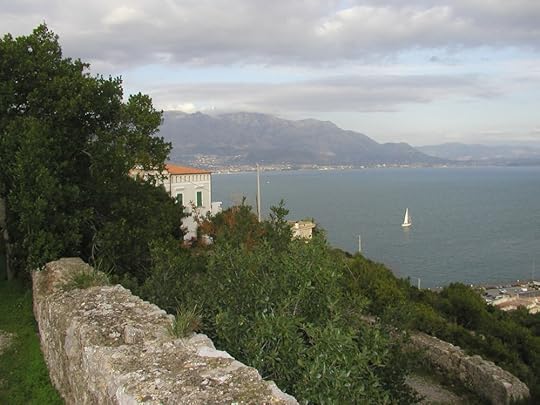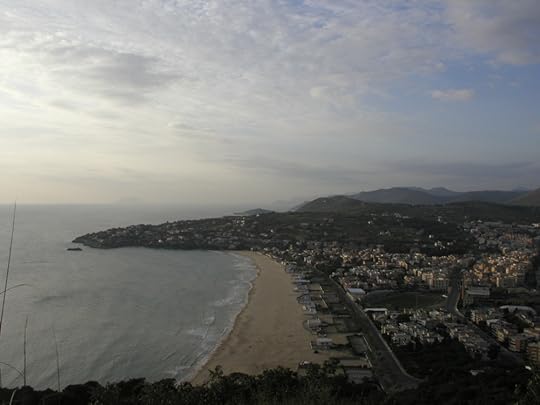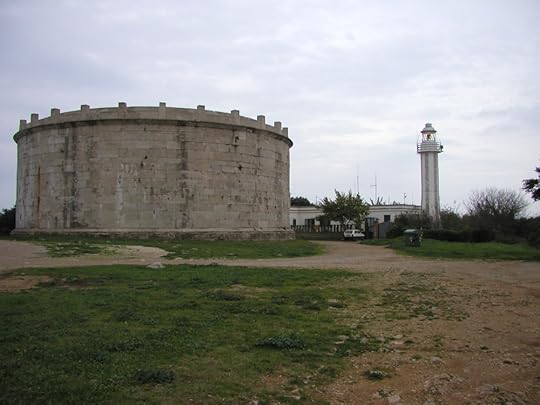R. Harrison's Blog, page 39
December 10, 2015
Gaeta
I really like Italy. It’s a disorganized, old, and new place – but one with great food and wine. Just be aware that the trains and buses don’t always run on Sundays. If you can learn a little Italian, then you can get around without too many problems.
These pictures are from Gaeta. I skipped out one afternoon from a scientific meeting to clear my head head and get some fresh air.
This looks like an oil tank, but is a Roman tomb.
Since I didn’t have a map, I took a picture from one of the signs.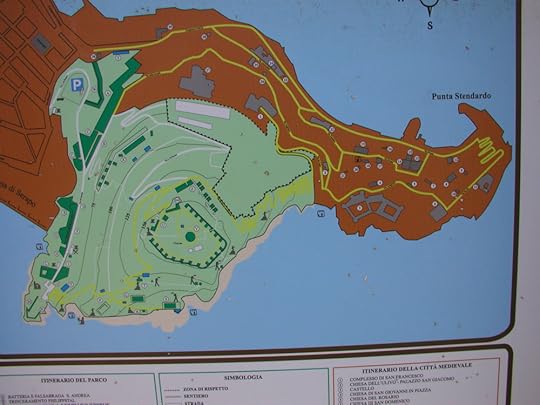


December 9, 2015
Heavy Threads
Hazel Hall
When the dawn unfolds like a bolt of ribbon
Thrown through my window,
I know that hours of light
Are about to thrust themselves into me
Like omnivorous needles into listless cloth,
Threaded with the heavy colours of the sun.
They seem altogether too eager,
To embroider this thing of mine,
My Day,
Into the strict patterns of an altar cloth;
Or at least to stitch it into a useful garment.
But I know they will do nothing of the kind.
They will prick away,
And when they are through with it
It will look like the patch quilt my grandmother made
When she was learning to sew.
Ms. Hall (1886-1924) is a surprisingly modern poet.
Sunrise at Cumberland Island
(c) 2011 Robert W Harrison


December 8, 2015
The Gift to Sing
James Weldon Johnson
Sometimes the mist overhangs my path,
And blackening clouds about me cling;
But, oh, I have a magic way
To turn the gloom to cheerful day—
I softly sing.
And if the way grows darker still,
Shadowed by Sorrow’s somber wing,
With glad defiance in my throat,
I pierce the darkness with a note,
And sing, and sing.
I brood not over the broken past,
Nor dread whatever time may bring;
No nights are dark, no days are long,
While in my heart there swells a song,
And I can sing.
Cranes in flight
(c) 2015 Robert W Harrison


December 7, 2015
Sonnet to Winter
Emily Chubbuck Judson
Thy brow is girt, thy robe with gems inwove;
And palaces of frost-work, on the eye,
Flash out, and gleam in every gorgeous dye,
The pencil, dipped in glorious things above,
Can bring to earth. Oh, thou art passing fair!
But cold and cheerless as the heart of death,
Without one warm, free pulse, one softening breath,
One soothing whisper for the ear of Care.
Fortune too has her Winter. In the Spring,
We watch the bud of promise; and the flower
Looks out upon us at the Summer hour;
And Autumn days the blessed harvest bring;
Then comes the reign of jewels rare, and gold,
When brows flash light, but hearts grow strangely cold
“Sonnet to Winter” was published in Judson’s book Alderbrook (W. D. Ticknor and company, 1847).
Waterfall in Cloudland Canyon
(c) 2015 Robert W Harrison


Mending Wall
Robert Frost
Something there is that doesn’t love a wall,
That sends the frozen-ground-swell under it,
And spills the upper boulders in the sun;
And makes gaps even two can pass abreast.
The work of hunters is another thing:
I have come after them and made repair
Where they have left not one stone on a stone,
But they would have the rabbit out of hiding,
To please the yelping dogs. The gaps I mean,
No one has seen them made or heard them made,
But at spring mending-time we find them there.
I let my neighbor know beyond the hill;
And on a day we meet to walk the line
And set the wall between us once again.
We keep the wall between us as we go.
To each the boulders that have fallen to each.
And some are loaves and some so nearly balls
We have to use a spell to make them balance:
‘Stay where you are until our backs are turned!’
We wear our fingers rough with handling them.
Oh, just another kind of outdoor game,
One on a side. It comes to little more:
There where it is we do not need the wall:
He is all pine and I am apple orchard.
My apple trees will never get across
And eat the cones under his pines, I tell him.
He only says, ‘Good fences make good neighbors.’
Spring is the mischief in me, and I wonder
If I could put a notion in his head:
‘Why do they make good neighbors? Isn’t it
Where there are cows? But here there are no cows.
Before I built a wall I’d ask to know
What I was walling in or walling out,
And to whom I was like to give offense.
Something there is that doesn’t love a wall,
That wants it down.’ I could say ‘Elves’ to him,
But it’s not elves exactly, and I’d rather
He said it for himself. I see him there
Bringing a stone grasped firmly by the top
In each hand, like an old-stone savage armed.
He moves in darkness as it seems to me,
Not of woods only and the shade of trees.
He will not go behind his father’s saying,
And he likes having thought of it so well
He says again, ‘Good fences make good neighbors.’


December 6, 2015
There be Dragons.
This is the third, and final, installment of my dragon short story. These are the links to the first and second parts. This starts the next morning and ends, well, sometime.
There be Dragons
In the morning, dressed again in her Samite and silk, the princess bade Hamish goodbye. He strode off, and walked surprisingly quickly uphill towards the dragon’s cave. Just as he was cresting the first hill, which would conceal him from the farm house, he turned and waved back to her.
The princess sniffed. For a base-born farmer, and not an especially handsome one at that, Hamish was good company. She’d miss him, maybe not a lot, but some.
The day slowly dragged into night, she kept the fire going. While the pottage was still edible, its savor was gone without company. Eventually, she found she could cry over the dragon, the loneliness, and even that farmer. She filled the vial, and put it back in her pocket. That evening a small yellow orb popped into existence while she was arranging blankets by the fire. The Witch Elmira spoke from it.
“Are you getting the dragon’s tears?”
“Yes, mistress.”
“Good.” There was the start of a laugh and the orb winked out.
It wasn’t until late the next day that Hamish returned. He was carrying a small brazier of coals with a vial on top of that. Bright yellow light emanated from the vial and chased the darkening evening away. It filled his small farmhouse with a warm glow.
“Sorry, Princess, that this took so long, but the tears must be kept hot. Otherwise, they turn into amber.”
“Oh.” Now that her quest could be met, she felt strangely sad. Hamish smiled at her, then said, “Don’t worry. Did you fill your vial?”
“Yes. It’s just I don’t know how I can ever repay you for your kindness and somehow.”
“Do you want to be a dragoness?”
“Yes.”
He smiled, “Then don’t worry about the payment. The valley needs a dragoness. Give me your tears.”
She grabbed the vial from her cloak and gave it to him. He gingerly removed the dragon’s tears from the brazier and mixed them with the tears in a cup. Then he gave it to her. “Drink.”
“Me?”
“Yes, now. Before it cools off.”
She drank the mixture. A puff of steam came out of her nostrils, and she said, “I want to be a dragon.”
Hamish quickly grabbed her hand and said, “Not here.”
“Why not?”
“You’ll destroy my house.”
She smiled, and he continued, “While I hold you, you are bound to human form. Follow me.”
He pulled her outside, and away from his farm buildings. Then he stopped, “Princess, there’s one more thing you should do. Remove your clothes.”
“Why?”
“You don’t need to, but it sure as heck stings when you expand to full size and they snap. Besides, you might want them again.”
“I want to be a dragon. Not a woman. Why should I want clothes?”
“Humor me on this. I’ll shut my eyes if that helps.” Working together with their free hands, they pulled her gown up over her head, and off. As it fluttered to the ground, he released her hand and she transformed. With a deafening bellow, she was off into the night sky.
Hamish looked around, whistled a tuneless melody and picked up her gown. Carefully folding it, he walked back to the farmhouse. He said, to no one in particular, “Good thing lambing season is almost done.”
The princess flew up to the cave. It was cold and vacant. The dragon hadn’t been there for some time. She crawled in and started to cry. “I hope that wizard hasn’t called his prince.” Then she looked over the edge of the cliff outside and the same rusted armor she had seen there on her first visit remained. If the prince had attacked the dragon, he’d been unusually neat and tidy about it. Then she noticed, scratched above the door, “Wait.”
“I suppose I shall. There will be plenty of sheep tomorrow when I get hungry.” She lay down on the jewels that the dragon had accumulated, and drifted off into a sound sleep. Shape-shifting is a tiring business, especially the first time you do it.
Sun streaming into the cave mouth, combined with the twittering of Robins, awoke her. She started to say, “What time is it?” but only roared smoke and flames out the mouth of the cave. Crawling to the mouth of the cave, she saw that the cold early spring had changed to the warmer days of early summer. More importantly, she saw, there in the distance, a man following the trail to the cave. Her eyes focused in on him, and she saw the details far better than she could as a human. It was Hamish, and he was carrying a bundle with him.
She shouted “Hamish!” Much to her surprise he stopped and waved. He’d know what to do to get her out of this mess. There was no point in staying a dragon, if there wasn’t another one for company. Especially if there wasn’t that handsome one, she’d tried to charm.
It took Hamish an hour’s hard climb, but he entered the cave. The princess was there. He stopped and said, “Princess, you left your gown behind. I thought you might need it.”
She looked at him and asked, “What do you think of me?”
“I’d say you make a remarkably beautiful dragoness.” She did. Jet-black scales ran down her back. These were complemented by red stripes and emerald eyes. Her teeth were straight and sharp. Her ebony claws were indescribably sharp and lovely. She smiled, at least did what passes for a smile among dragons, and said, “You seem to know the right things to say.”
He entered the cave and set his bundle down to the side, away from the jewels. Then he approached her and stroked her forehead.
She said, “You aren’t scared of me?”
“No. I’m not worried about dragons, not at all.”
She tilted her head in curiosity and continued, “Then you’re a very strange farmer.”
“I am.” He sat in front of her and said, “Put your head on my lap, and we’ll talk.”
She did, and he reached behind her ear-holes and scratched. Then he reached around below the back of her jaw and scratched that too. She purred, “That feels so good. How do you know where to scratch so well?”
“I have my sources. So how does it feel to be a dragon?”
“Lonely.”
“Lonely?”
“I’d hoped that the dragon who lived here would still be here. He was a handsome beast. He’s who I cried for, mostly. I cried a little for you too.”
Hamish laughed, “I’m pleased to hear it, and I know dragons, even female dragons, don’t lie.”
“Don’t make fun of me. I don’t know what I should do.”
Hamish said, “One of the difficulties in dragon courtship, for the male, is knowing when the lady will accept his company and when she’ll try to fight. It sounds like you want male company.”
“I do.”
He gently pushed her head from his legs, “Sorry they were beginning to go to sleep.” Then he knelt next to her and stroked her face and neck until she drifted off into an uneasy sleep. After she was breathing with the calm, regular breath of deep sleep, he arose.
The princess awoke to see Hamish, standing naked at the edge of the cliff. He smiled at her and then started to do a backward swan dive from the ledge. She shouted, “Hamish!” and hurried to the opening. Maybe if she were in time, then maybe, just maybe she could catch him.
She didn’t need to. There, flying in front of her nose was the other dragon. A handsome dragon, with deep red scales and yellow eyes. It was the one she was waiting for. He said, “Neat trick what?”
She sent a ball of flames his way, which he dodged, and flew out to join him.
“You nearly scared me to death with that trick.”
“I never said I couldn’t shape-shift, just that I wouldn’t – not for a princess who was a man-trap.”
“You would for a dragoness?”
“With great enjoyment.”
“What were you doing as a farmer?”
“It was lambing season. The sheep don’t need me now.”
The princess gave as much of a blush as a dragon can, which amounted to little more than a genteel puff of steam. Then she said, “Next spring, am I welcome to help?”
“Why do you think I saved your gown? Could have gotten a hundred marks for that Samite at the market.”
She swatted at him with her tail, playfully. He replied in kind, and they rolled down the side of the mountain together, flattening a small forest in the process.
Later that night, tightly wrapped in each other’s coils, he said to his mate, “There’s one other advantage to being a dragon you know.”
She nuzzled his neck purred and said, “What?”
“Eggs. Dragon’s eggs are much easier to birth than babies.”


Redefining “Success”: On Self-Care, Balance, and Overwork in Academia
Very true, although I didn’t have to get to death’s door to see it.
 Originally posted on SAS Confidential:
Originally posted on SAS Confidential:
Author: Raul Pacheco-Vega
Originals: RaulPacheco.org [ 1 | 2 ]
By some people’s standards I could consider myself a very successful academic. I have a job I love at a prestigious, internationally-recognized institution, I have a low teaching load, have successfully raised extramural grant money to execute projects, I have brilliant students, both undergraduate and graduate. I absolutely love my research and have fantastic collaborators worldwide and wonderful colleagues at my institution’s campuses.
Definitions of success in academia need to be as varied as the hypotheses we pose. To some, being in a tenure-track or tenured is success.
— Dr Raul Pacheco-Vega (@raulpacheco) April 17, 2014
Yet, I can’t help but remind myself that definitions of success vary. I’m not a fan of “publish-or-perish”, and sometimes I defy the old canon by refusing to engage in it. Yet other times, I just can’t stop myself from writing about a…
View original 925 more words


Knows how to forget! (433)
Emily Dickinson
Knows how to forget!
But could It teach it?
Easiest of Arts, they say
When one learn how
Dull Hearts have died
In the Acquisition
Sacrificed for Science
Is common, though, now —
I went to School
But was not wiser
Globe did not teach it
Nor Logarithm Show
“How to forget”!
Say — some — Philosopher!
Ah, to be erudite
Enough to know!
Is it in a Book?
So, I could buy it —
Is it like a Planet?
Telescopes would know —
If it be invention
It must have a Patent.
Rabbi of the Wise Book
Don’t you know?
A barge fading away, one of many sunk to preserve the Gloucester and Sharpness Canal. Purton UK
image (c) 2015 Robert W Harrison


December 5, 2015
FrankenKitty 8 #wewriwar #amwriting
(Some assembly required)
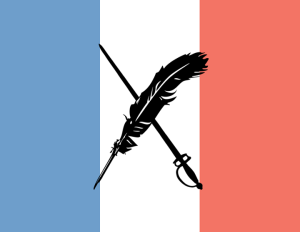
Welcome to Weekend Writing Warriors. This is a sample from my work in progress, “Frankenkitty”, and I hope you enjoy it. It started out as a young-adult superhero book, and well, you’ll see. Last week Jenny and her father met Mrs. Jones and arranged for an exchange student, Gertrude von Volkstein, to visit. This week, in the chapter, “The Gerbil from Hell,” the girls find a test subject.
Bobby’s Gerbil died in the night from whatever it was that carried off small animals. He, Bobby, not the Gerbil, of course, was upset. His mother and Jennifer were secretly relieved. Like most boys, he’d promised to look after the animal, keep the cage clean, the poor thing fed and played with. These tasks had devolved on his mother and sister. The body was put in the fridge so that a proper funeral could be arranged.
Jennifer called Amber on her cell on the way to school.
“Amber, we have a subject.”
This is a work in progress. In other news, I’ve become a booktrope author, but more on that latter. It has meant a change in pen-name. Last weeks is here and you can read the whole last chapter if you’d rather. I’ve added a sub-title “(some assembly required).”
I’m also looking for reviewers for my nearly ready book “The Curious Profession of Dr. Craven” It’s moved out of layout to final assembly.


Most Sweet It Is With Unuplifted Eyes
William Wordsworth
Most sweet it is with unuplifted eyes
To pace the ground, if path be there or none,
While a fair region round the traveller lies
Which he forbears again to look upon;
Pleased rather with some soft ideal scene,
The work of Fancy, or some happy tone
Of meditation, slipping in between
The beauty coming and the beauty gone.
If Thought and Love desert us from that day,
Let us break off all commerce with the Muse:
With Thought and Love companions of our way,
Whate’er the senses take or may refuse,
The Mind’s internal heaven shall shed her dews
Of inspiration on the humblest lay.
Blood Mountain Wilderness
(c) 2008 Robert W Harrison. (accept no substitutes)




